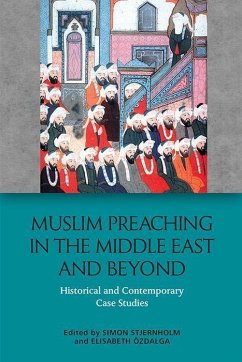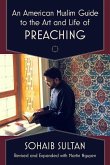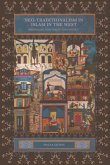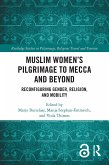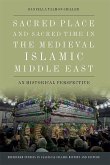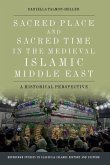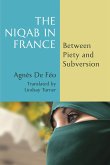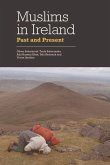'This impressive volume puts the past and present of Islamic preaching in comparative perspective. With nuanced attention to both larger contexts and local contingencies, it masterfully explores the ethical, political, and mediated stakes of this authoritative yet continually transforming Islamic practice from 14th century Cairo to 21st century Los Angeles, from Sweden to Saudi Arabia.' Yasmin Moll, Assistant Professor of Anthropology, University of Michigan Explores Muslim religious oratory across time, culture and media Preaching has been central to Muslim communities throughout the centuries. The liturgical Friday sermon is a prime example, although other genres that are less commonly known also serve important functions. This book addresses the ways in which Muslims relate various forms of religious oratory to authoritative tradition in twenty-first-century Islamic practice, while striving to adapt to local contexts and the changing circumstances of politics, media and society. This is the first book of its kind to look at homiletics beyond a specific country focus. Taking into consideration the historical developments of Muslim preaching, it offers a collection of thoroughly contextualised case studies of oratory in Turkey, Egypt, Saudi Arabia, Bosnia, Sweden and the USA. The analyses presented here show shared emphasis on struggles for legitimacy, efforts to speak authoritatively, as well as discursive opportunities and constraints. Key features - Explores the great variety of Muslim religious oratory in Muslim majority and minority contexts - Combines analyses of political and ideological uses of oratory, with a focus on its ritual aspects and ramifications - Puts particular emphasis on the impact and uses of various types of media in relation to the authoritative power of religious oratory - Stresses the symbolic power of religious oratory and its impact on cultural and national identity formation Simon Stjernholm is Associate Professor in the Department of Cross-Cultural and Regional Studies, University of Copenhagen. Elisabeth Özdalga is a Professor and Senior Researcher at The Swedish Research Institute in Istanbul. Cover image: Turkey/Arabia: The Prophet Muhammad preaching from a minbar (pulpit) at a mosque in Medina, Saudi Arabia, as represented in a 16th century Siyer-i Nebi or Life of the Prophet commissioned in Turkey by Sultan Murad III (r. 1574-1595) akg-images / Pictures From History Cover design: [EUP logo] edinburghuniversitypress.com ISBN 978-1-4744-6747-6 Barcode

